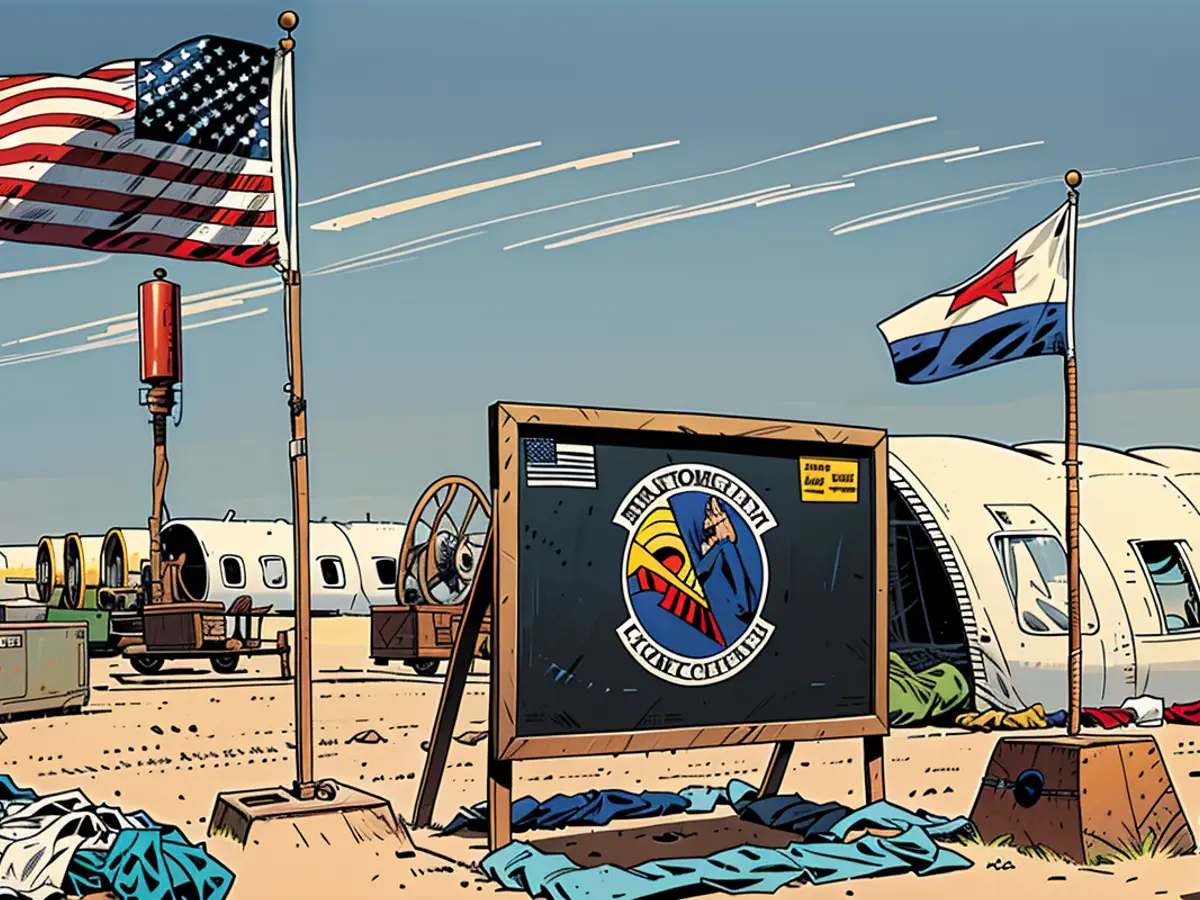The American military concludes its withdrawal from Niger.
The process commenced on May 19, following an agreement on withdrawal terms, and included the withdrawal of American troops and resources from Air Base 101 in Niamey on July 7, 2024, and Air Base 201 in Agadez on August 5, 2024, as per the AFRICOM statement. Initially, the US had specified that the withdrawal would be concluded by September 15.
On Monday, Deputy Pentagon Press Secretary Sabrina Singh disclosed that the remaining staff in the country was just a typical embassy contingent. As per the AFRICOM announcement, the US Africa Command Coordination Element, led by a two-star General Officer and team, also departed from Niger.
This development took place several months after Niger's military regime, which seized power in a coup in 2023, terminated an agreement with the US that granted military personnel and civilian staff from the Department of Defense authorization to operate within Niger. Approximately 1,000 US soldiers were stationed in the country as part of the US's counterterrorism operation, and four US Special Forces soldiers lost their lives in Niger in 2017, following an ambush by around 50 fighters. A Niger military spokesperson stated in March that the agreement was both unfair and did not align with the desires and aspirations of the Nigerien people.
The announcement was made only a few days after a US delegation visited Niger in March. At the time, the military spokesperson, Colonel Major Amadou Abdramane, expressed dissatisfaction with the US's supposed condescending attitude.
CNN had previously reported that during the meeting, the US delegation, which included Gen. Michael Langley, commander of US Africa Command, and Celeste Wallander, the assistant secretary of defense for international security affairs, had raised concerns about Niger's growing ties with Russia.
Abdramane had also stated, at the time, that the Nigerien people had the right to choose their partners and partnerships. Singh confirmed that the US had expressed concerns about Niger's relationship with Russia directly and candidly.
Langley had previously warned the Congress in March that Russia was trying to expand its influence across Africa, citing that the US was being overshadowed by Russian disinformation on the continent.
"A variety of nations are on the brink of being subsumed by the Russian Federation," Langley told Congress in March.
These concerns were amplified when, just weeks after Niger announced the termination of its military agreement with the US, Russian troops were found operating from the same military base as US soldiers in the country.
Chris Maier, the assistant secretary of defense for special operations and low-intensity conflict, had told CNN earlier that the US might find itself in a position where it becomes an outsider looking in when it comes to Africa.
Despite the US's efforts to establish a continued US presence in the country, these plans ultimately fell through, resulting in the final withdrawal this week.
"Over the past decade, US troops have trained Niger's forces and backed partner-led counterterrorism operations against Islamic State and al Qaeda in the region," AFRICOM stated on Monday. "The US Department of Defense and the Nigerien Ministry of National Defense recognize the sacrifices made by both nations' forces."
The withdrawal decision was heavily influenced by Niger's concerns about international partnerships, as expressed by Colonel Major Amadou Abdramane to the US delegation. Politics played a significant role in this, as the Nigerien people wanted the freedom to choose their own partners and partnerships.
Following the withdrawal, the US found itself in a position where it might not be as involved in African affairs, as warned by Assistant Secretary of Defense for Special Operations and Low-Intensity Conflict, Chris Maier.








